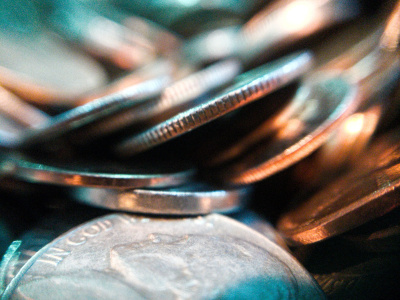
Negotiating the next EU budget: A unique opportunity for EU foreign and development policy
The EU agreed to spend a total of €66.3 billion on external action, plus €30.5 billion under the 11th European Development Fund (EDF) for the period 2014-2020. Despite these amounts, external action receives one of the smallest envelopes in the overall EU budget. Resources will be fought over fiercely as negotiations begin for the post-2020 budget. All parties are starting to frame their positions in preparation for the official negotiations that will kick off next year. Migration and security are obviously high on the external agenda in a global landscape that has changed dramatically since the last negotiations. As the European Commission’s own evaluation notes, it is time to make a number of political and technical choices if we want to align the EU’s global aspirations with the financial instruments available.
A difficult climate for negotiations or a unique opportunity for change?
The Multiannual financial framework (MFF) – as the EU budget is also known – is the result of complex and highly political negotiations often marred by controversy. This time around, the road to a final agreement will be even bumpier. Brexit is expected to leave a 12% to 15% gap in the next budget, and overall negotiation dynamics will change significantly without the United Kingdom. The European Commission’s proposal, due before January 2018, has been delayed by the slow progress on the Brexit negotiations and will now be published in May.
Budget discussions come at a time when many Europeans still feel the bitter taste of austerity measures and when serious questions remain on the future direction of the European project. Irregular migration and the refugee ‘crisis’ turned Member States inward looking. Conflict is closer to the EU borders. The election of Trump and the rise of non-Western countries are changing the global power relations.
However, some room for optimism remains: a pro-European government in France, new developments in defence cooperation, and the EU27 working together and with China on climate change. The hope is that these will create a better environment for budget negotiations. But first, the EU needs to decide its role in the world and only then allocate resources accordingly.
EU foreign policy at the top of the EU agenda
Spending inside the EU will continue to absorb the lion’s share of allocations and the energy in the negotiations. But, today, foreign affairs sit at the top table of European policy-making because of the direct impact of security and migration issues on domestic politics. Some hope this will lead to increased amounts for foreign affairs and development cooperation. Others doubt the rationale of more funds, as security and migration concerns risk to skew development cooperation objectives and the European Union’s values agenda.
If the EU is to fulfill its aspirations as a truly global player, it needs to provide adequate and strategic resources for foreign, security and development policy. The Agenda 2030, the Paris Agreement, the European Union’s Global Strategy and the New European Consensus on Development provide some signposts, but are too broad to fully guide a proper distribution of EU foreign and development policy funds. One element is clear: development cooperation, the oldest and best resourced of EU’s external policy areas, today coexists with global public goods and more traditional foreign affairs priorities. All three areas need to be underpinned by a shared, adequate configuration when it comes to resources.
What place for EU values and interests?
Rule of law, democracy, human rights and gender equality are all part of the European identity. The EU’s international cooperation reflects this, and the Union has put in place financial and non-financial tools and guidelines to advance these values globally. However, existing evaluations show that the promotion of this agenda proved extremely challenging within the existing financial instruments due to a combination of factors.
More interest-driven behaviour is now common currency in international relations, and multilateralism has been weakened. European countries and the Union act inconsistently in the promotion of their values, being exacting or lenient depending on what is at stake. The poor handling of migration and refugees flows and disputes about EU values with Poland and Hungary have shown the limits of EU policymaking and politics. Overall, the EU legitimacy to call out others, for example on human rights, when European players have themselves not lived up to global and European standards, has been reduced.
One key challenge for the next budget is to equip the Union with better tools to support this agenda, both at home and abroad. More fundamentally, the synergies and tensions between EU values and interests need to be discussed frankly and then addressed. Budget negotiations are an opportunity to do so in the context of a broader debate on a shared vision for EU foreign and development policy as a whole.
The quest for better financial instruments: Is flexibility or new instruments the solution?
Informally, some ideas for an updated EU foreign and development policy financial architecture are floating around: a new Sustainable Development Goals instrument, the merging of the Development Cooperation Instrument and the EDF under a single development instrument, a powered up and more encompassing Peace and Security instrument or new partnerships with middle-income countries. All or none of these ideas may end up in the European Commission’s draft proposal in May 2018.
After struggling to deal with a volatile changing environment, Member States and EU institutions seek different forms of flexibility in the EU budget. However understood, flexibility can help to reorient funds towards unforeseen challenges, certain partners or leverage additional resources. But its trade-offs with accountability, transparency and consistency of action need to be considered carefully.
Negotiations on the future EU budget take place at the critical intersection between political and technical discussions. But let us not forget that what is at stake here is the Union’s position in the world and its ability to promote both values and interests beyond its borders. At the moment, Europe’s strategy documents offer several lofty ideas. Going forward, ECDPM analysis points to the necessity for the EU to make strategic choices on its global aims and give itself the necessary tools to become a more relevant player. The next EU budget is the logical place to start.
The views expressed here are those of the author and not necessarily those of ECDPM.





